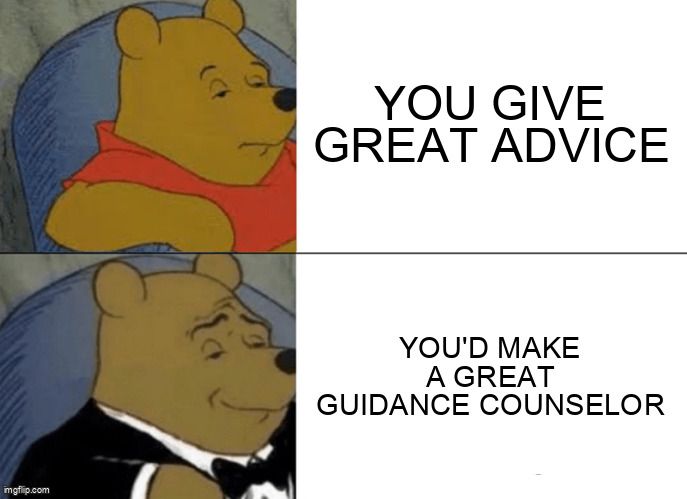Have you ever been told you give great advice? Do your friends and family often look to you for guidance? If so, becoming a guidance counselor might be a fitting career path!

Guidance counselors provide support and advice to people (typically students in a school/learning environment) to help direct them in their personal lives, academics, and careers. This personalized approach to helping students allows them to build self-esteem and realize their potential.
Day in the Life of a Guidance Counselor
 Photo by Christin Hume on Unsplash
Photo by Christin Hume on UnsplashNo two days in the life of a guidance counselor look the same. Activities will vary depending on the students you're working with and their particular needs. On a given day, your responsibilities might include:
Assessing/analyzing students around their skills, behaviors, and personalities
Creating individual plans for personal/academic/career success
Providing references for students who require long-term support
Advocating for individual students at relevant student-focused meetings
Advocating for more equitable and accessible opportunities and achievements across the institution for the benefit of all students
Collaborating with a student’s individual support team (e.g., family members, teachers, etc.) to help the student achieve success
How to Become a Guidance Counselor
 Photo by Andre Hunter on Unsplash
Photo by Andre Hunter on UnsplashGuidance counselors typically work in schools or some other educational setting. To work in the United States or Canada, guidance counselors typically need to:
Have a master’s degree in counseling
Meet relevant state/country-specific licensing standards (this might include a number of hours of practical experience and/ or passing an exam)
Comply with the relevant ethical and professional standards (e.g., ASCA standards in the US)
Fulfill new and existing education requirements as needed
The average yearly salary for a Guidance Counselor is $57,163 in the United States and $61,570 in Canada. An exact salary will be dependent on experience, seniority level, and location within those countries.
Is Guidance Counseling a Good Fit for Me?
You're likely to find fulfillment as a guidance counselor if you have a passion for helping people. While you might only work with these people for a small fraction of their lives, you can provide them with wisdom that they will never forget and set them on a course for a bright and abundant future.
Decide if guidance counseling is a good fit for you by having a look at your preferences and skillset.

Guidance counseling might be a good fit if you are:
Empathetic
A good communicator
Patient
Happy working with young people

You might want to consider other options if you:
Prefer to deal with facts over feelings
Prefer working alone
Are very solution-oriented and prefer to focus on just “getting the job done”
Don't enjoy working with young people
Choose the Future Guidance Counselor
Which one of these people is best suited to a career in guidance counseling?

Emma
Extremely patient, works best alone
Enjoys working with animals
Loves athletics

Mubarak
Good at peer-communication
Enjoys taking personality quizzes
A cooking fanatic

Larry
Works well with people and alone
Loves designing games
Has an entrepreneurial spirit

Rabiah
Loves working with young people
A great communicator
Enjoys sewing and embroidery
Quiz
Which of these people is most suited to a career in guidance counseling?
Take Action
If guidance counseling sounds like a good fit for you, great! Reach out to people in person or online who do guidance counselling and ask for an informational interview to help you learn more about the role.
 Photo by Dim Hou on Unsplash
Photo by Dim Hou on UnsplashIf guidance counseling doesn't sound like a good match for you, no worries! There are plenty of other career paths to choose from. You can explore some other options via Rumie's Dream Jobs channel.
Your feedback matters to us.
This Byte helped me better understand the topic.
